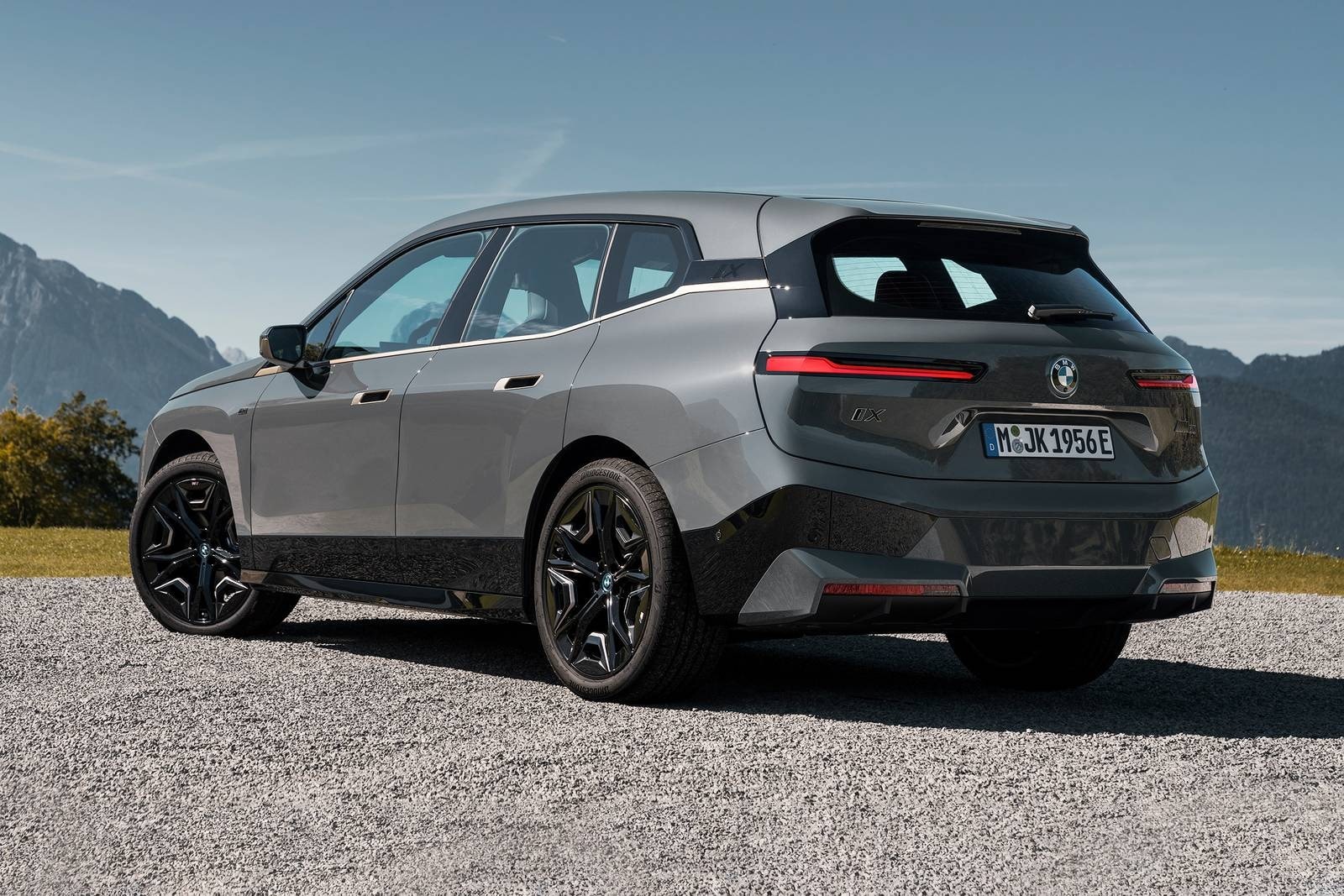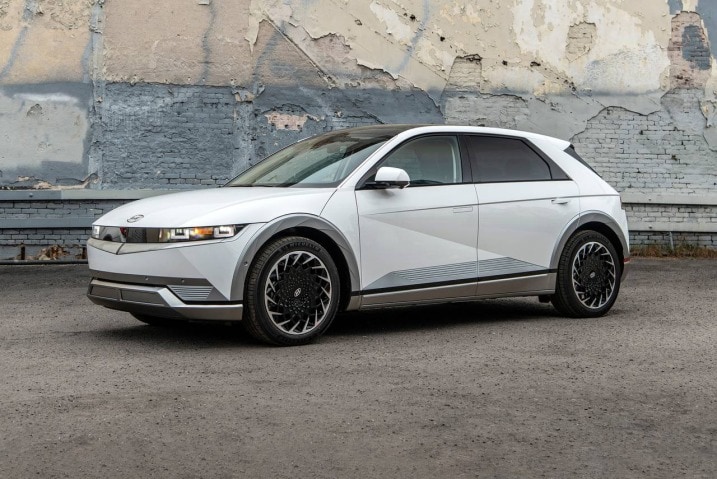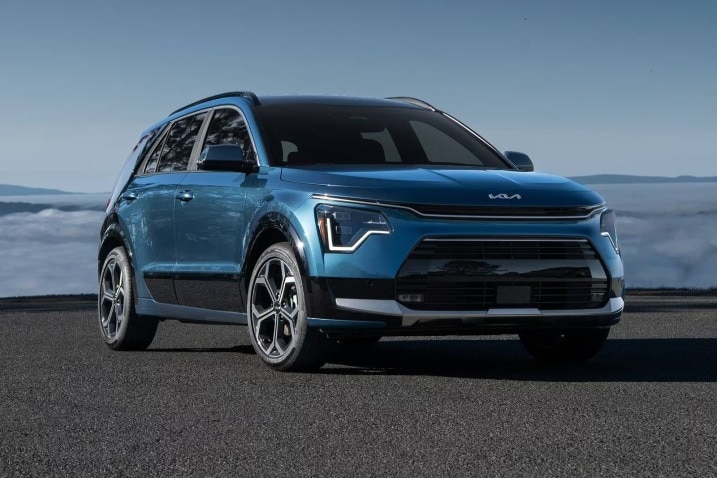Pro: Electric cars are cheaper to fuel
If you've spent your whole life paying for gas, you're probably well aware of the advantages of switching to electric. While electricity prices vary from state to state, just as they do for gasoline, you can save a bunch of money if you're able to charge at home.
Pro: EVs are fun to drive
The instant torque delivered by electric vehicles makes them a blast to drive. Modern electric cars like the Tesla Model S are extremely efficient in addition to being lightning quick. The extreme Model S Plaid can go from 0 to 60 in 2.3 seconds, yet it's far from the EV equivalent of a gas guzzler, consuming electricity at a relatively moderate rate.
Pro: Electric vehicles are good for the environment
Tailpipe emissions from gas-burning vehicles have not done any favors for our planet. That's where battery electric vehicles come in. These vehicles, like the Tesla Model Y, Ford Mustang Mach-E and Hyundai Ioniq 5, don't produce any emissions and are increasingly the way of the future. To be clear, the production of EVs produces significant emissions, and the charging of EVs produces emissions to the extent that the electrical grid is powered by fossil fuels. But at the end of the day, an EV is better for the planet, especially in the long run as grids shift to more renewable energy sources.
Pro: Improved air quality
In related news, if you like clean air, you're in luck! Switching from a gas-burning vehicle to a battery electric vehicle can improve local air quality as well as the environment at large. The fewer vehicles with internal combustion engines on the road, the better your local air quality will become. That has been especially true in metro areas like Los Angeles, where an increase in electric vehicles has been associated with a reduction in serious asthma cases.
Pro: Electric cars are less expensive to maintain
You'll still have to do a bit of maintenance on your electric vehicle, but the list of maintenance you won't have to do is quite a bit longer. There won't be any oil changes in your future, nor will there be any timing belts to replace. Brake pads should wear out less frequently, too, if your electric vehicle uses a lot of regenerative braking.
Pro: Electric vehicle tax credits
The good news is that EV tax credits have recently expanded to include used EVs. The bad news is that the rules surrounding which vehicles, and shoppers, qualify have become more complicated. Here are the latest details on the EV tax credit. Keep in mind that not all vehicles are eligible, nor are all shoppers. That's especially true when looking at used vehicles.
Pro: HOV lane accessibility
In some states, buying an electric vehicle gives you access to the HOV or carpool lane. That can be a pretty serious perk, especially if you live in Southern California. Used electric vehicles can be eligible for this perk depending on where the EV was registered previously and if it had the HOV decals in the past.
Pro: Peace and quiet
We love the rumble of a V8 sports car or the diesel clatter of a big truck, but there's something soothing about the quiet of an EV gliding on a smooth highway at the end of a workday. As more luxury car companies like Mercedes-Benz get involved in the electric car fight, you can feel these vehicles becoming ever more insulated and refined.
Con: Range anxiety
The average range of electric vehicles sold in 2022 was a little more than 200 miles. While that's probably enough for most people, so long as they can charge at home, it doesn't account for all situations. That's where range anxiety comes in. What if you need to go on a long drive? What if you don't have time to charge? What if Godzilla chooses a moment when you only have 30% charge to attack your town? Scary! If you still had your Honda Civic, you'd be able to hit a gas station on the way out of town.
Con: Charging infrastructure isn't great
If you can't charge at home, or if you're taking your EV on the road, you'll find yourself disappointed in the lack of publicly available electric vehicle charging stations. While there is public commitment from the U.S. government to increase the number of charging stations, that doesn't do much for current electric vehicle owners. If you own a Tesla, you have access to the company's robust Supercharger network. For everyone else, it's a bit dire.
Con: Lack of affordable electric cars
Inexpensive electric cars and SUVs exist — we have a popular list of them right here — but there aren't very many of them. Manufacturers have instead flooded the luxury market with vehicles like the BMW iX, Mercedes-Benz EQS and Lucid Air. That said, the Nissan Leaf was early on the scene and the Chevrolet Bolt EV is also relatively affordable. Trouble is, those models are relatively bare-bones in terms of features. It can also be tough to find those cheaper models in stock.
Con: Long charging time
Putting electrons into an electric vehicle is not like putting gas into your Toyota Sienna. If you can charge at home, you can at least build charging your EV into your routine by charging overnight. That is often when it's cheapest and most convenient, though that can vary depending on where you live. The long charging time is unfortunately baked into the bread of owning an EV. Charge time depends on your vehicle and the type of charger you're using. While fast charging is available, you don't want to use it all the time because it degrades the battery in your vehicle.
Con: Battery degradation
Speaking of! The battery inside your electric car doesn't last forever. While most batteries are rated to last at least 10-12 years, that's more of a guideline than a hard and fast rule. Driving your vehicle gently, using slow chargers (Level 2 and lower), and charging your vehicle to no higher than 80% capacity are all practices that can keep your battery in good condition. Replacing your battery can be very expensive, so it's important to keep it as healthy as possible as long as you can.
Con: Fossil fuels are in play
Whether you're driving a hydrogen car or a battery electric vehicle, you're still relying on a grid that usually relies on fossil fuels, as noted above. There are some exceptions to this, primarily as it relates to the generation of electricity. Some states are increasingly generating electricity using renewable energy thanks to wind farms and solar energy. But don't think of an electric car as a get-out-of-climate-change free card; it's more of a step in the right direction.




